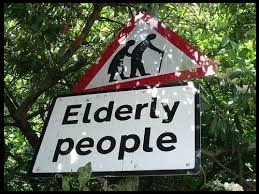
Dementia can cause a person to become disorients and unable to remember who they are and where they live. They may believe their son or daughter is waiting for them and wandering off they go.
The phenomenon called wandering.
Sometimes, while taking a walk outside down the street, they suddenly feel lost and unable to remember where they are. Being confused may create a sudden state of panic in the individual, and they may be unable to communicate who they are and where they are. This state of mind makes it hard for people to help them.
In this article, we are going to be talking about wandering warning signs and how you can prevent this from happening to your loved one.
Who could be at risk?
There are vital signs to keep in mind that could hint at the possibility of a person wandering. Even the earliest stages of dementia can cause a person to become disoriented for brief periods of time, and there are certain warning signs you should keep in mind.
If the individual goes out for a walk and they take much longer to return than you would expect, this could be an early sign of wandering issues. If they say they want to go home and are already at home, this means they are experiencing disorientation.
He or she may be having difficulty finding places in the house, and appearing lost as if trying to locate the reason why they stood up in the first place.
What are the best ways to prevent wandering?
A good way to prevent wandering is to establish a consistent schedule of daily activities. This kind of structuring is very helpful for people who suffer this problem. Try to determine the hour of the day in which the wandering seems to happen most. Planning activities to keep them busy during those times can be very helpful.
Give them a bracelet or necklace that contains their personal information.
Their name, phone number, and address should be on the bracelet. But if they are wandering and live alone they won’t answer the phone. It is also a good idea to include the names of family members. If they live in a facility that number will be of use.
If a person gets lost, search the places they usually go. But there may be no point to their wandering. They may wander in the direction of their dominant hand. They will go to the right if they are right handed and left if they are left handed.
Conclusion
Wandering is a condition that is stressful for both the person experiencing it as well as those around them. But with proper precautions, it can be dealt with to avoid any serious problems.
More Information
